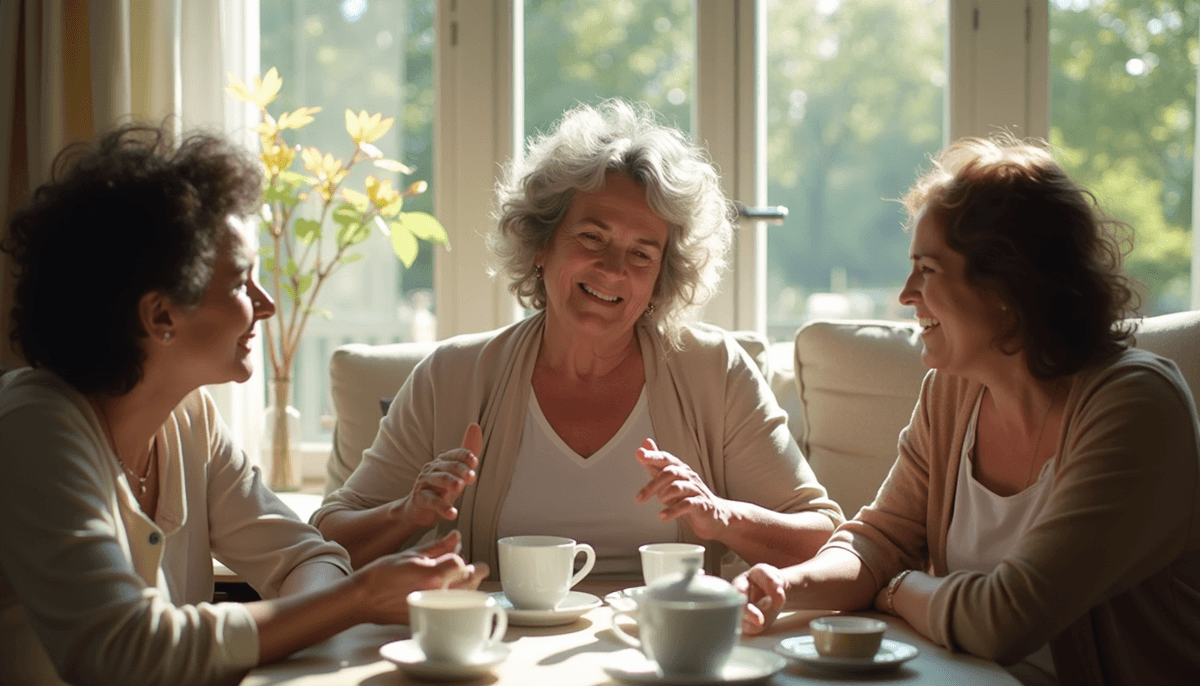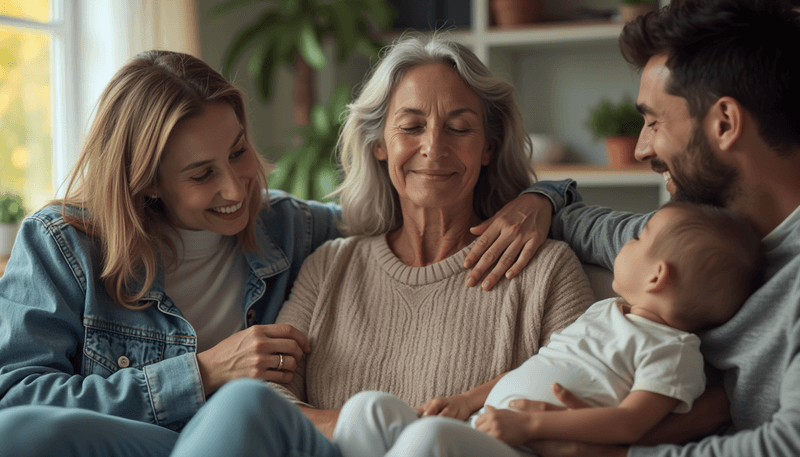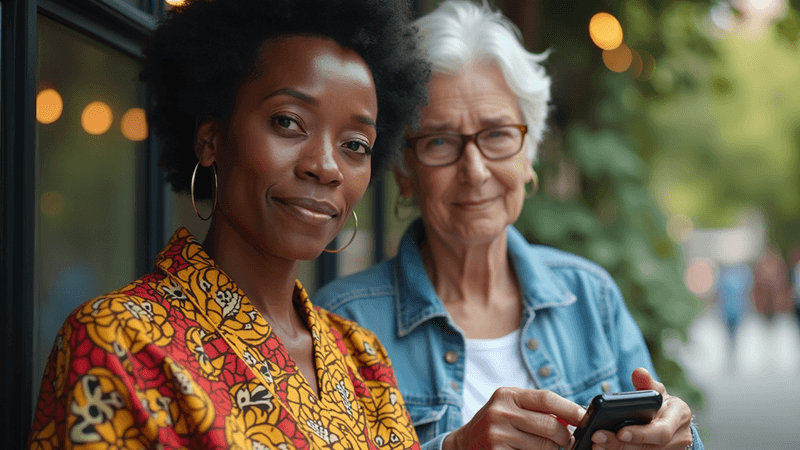Friends Help Menopause Blues Away

Your teenage daughter rolls her eyes when you mention hot flashes again. Your husband seems lost when you try explaining your mood swings. Your best friend listens but doesn't quite get it. Sound familiar? The menopausal journey often feels lonely, especially when dealing with emotional challenges. But here's something interesting - new research from the University of Twente reveals surprising insights about how different support networks affect our mental well-being during menopause.
The Unexpected Connection Between Children and Anxiety
Here's a fascinating discovery - while emotional support from husbands and friends didn't significantly impact menopause-related symptoms, support from children showed remarkable effects on anxiety levels. Scientists found that women who received more emotional support from their children experienced less anxiety during menopausal transitions.
"Why might children be uniquely positioned to help with menopause-related anxiety?"
The answer lies in shared experiences. Many women go through menopause while their children are navigating puberty. Both life stages involve hormonal changes, mood swings, and physical transformations. This parallel experience creates a unique bond - your children might understand your anxiety better than anyone else because they're experiencing similar emotional turbulence.
The Support Puzzle: Quality Over Quantity
The study revealed something unexpected about emotional support - it's not just about how much support you receive, but the type of support and who provides it. While husbands and friends spent more hours providing emotional support, their impact on depression and anxiety symptoms wasn't as significant as initially expected.
What makes effective emotional support?
- Understanding the experience (shared experiences matter)
- Targeted support (knowing what kind of support is needed when)
- Consistency (regular, reliable support rather than occasional intense support)
"Have you noticed differences in how various types of support affect your mood during menopause?"
Building Your Support Network for Better Mental Health
The research highlights that menopause-related depression and anxiety are real challenges that affect many women. However, it also shows that we can actively work to improve our mental health during this transition.
Practical steps to strengthen your support network:
-
Open conversations with children:
- Share age-appropriate information about your experience
- Listen to their experiences with body changes
- Create mutual support opportunities
-
Partner education:
- Share specific examples of helpful support
- Provide resources about menopause
- Express appreciation for support efforts
-
Friend connections:
- Connect with women in similar life stages
- Share experiences without judgment
- Create regular check-in routines
The study examined 750 women across different menopausal stages and found that symptoms of depression and anxiety were indeed higher during menopausal transitions. However, the right kind of emotional support made a significant difference in managing these symptoms.
"What small step could you take today to strengthen your support network?"
Your menopausal journey doesn't have to be a solo expedition. While the research shows that different types of support have varying effects, the key is building a diverse network that understands and responds to your specific needs. Start by having one honest conversation today - whether with your child, partner, or friend - about your experience and needs during this transition.
Ready to take action? Choose one person in your support network and share something specific about your menopausal experience with them this week. Sometimes, the smallest steps lead to the most significant changes in how we feel and cope with life's transitions.

Dr. Anya Sharma, MD
Dr. Anya Sharma is a board-certified gynecologist with over a decade of experience specializing in women's health and patient education. She graduated from Johns Hopkins School of Medicine and completed her residency in Obstetrics and Gynecology at a top hospital in New York City. With a passion for empowering women, Anya transitioned to content creation to provide accessible, evidence-based information on health topics relevant to mid-aged women. Her empathetic and pragmatic approach combines medical expertise with relatable insights, making her a trusted voice in the field.






